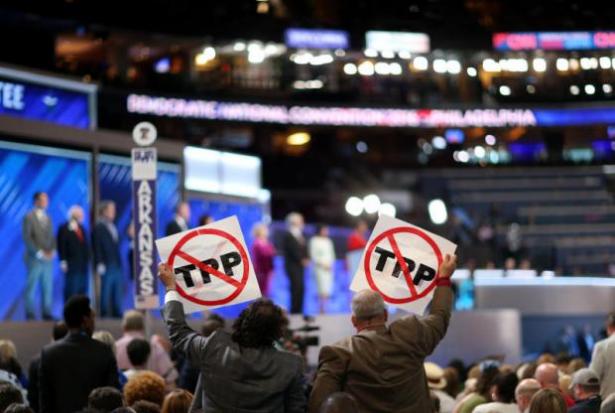Thailand: TDRI Diversify from US market
Thai businesses are being urged to prepare for a possible trade war ignited by the protectionist policies of US President Donald Trump by diversifying into other markets.
Somkiat Tangkitvanich, president of the Thailand Development Research Institute (TDRI), said yesterday that while Thailand is less exposed to US protectionism than other Asian countries, it could face short-term volatility in global financial markets because of frequent policy changes by Mr Trump.
He indicated that an increase in trade barriers and trade sanctions was likely, including a border-adjustment tax, non-tariff barriers such as anti-dumping moves, environmental and labour measures, and currency manipulation charges. Mr Somkiat said Thailand makes up 1% of US imports, a far lower share than Vietnam, Malaysia, India or China.
“Thailand should closely monitor US protectionist measures, as the global trade volume is likely to drop if goods become more expensive,” he said, speaking at the IDE-Jetro and TDRI 2017 Joint International Academic Symposium. “Excessive protectionist measures by the US and China may lead to a global trade war and possibly a great recession as happened in 1910, eventually triggering a world war.”
Mr Somkiat said Thailand is expected to receive more opportunities to substitute for China’s exports to the US if the US administration imposes punitive tariffs on Chinese products.
A possible relocation of Chinese firms to Thailand is also likely, which could negatively affect local firms supplying China, notably in electrical appliance parts and electronics parts, he said.
“Thai businesses and the government have to come up with a Plan B by diversifying more into as many other markets as possible, as Thai shipments to the US are unlikely to grow,” Mr Somkiat said.
He suggested the government rev up free trade agreement (FTA) talks with major trade partners such as Britain, prepare for a possible revival of the Trans-Pacific Partnership (TPP) and step up talks for the 16-member Regional Comprehensive Economic Partnership.
Mr Somkiat urged Thailand to upgrade the economy to be based on high technology and innovation, implement unilateral liberalisation by reducing import tariffs to zero, liberalise service sectors to increase efficiency, and accept more high-skilled workers into the country.
Daisuke Hiratsuka, president of Bangkok Research Center, Institute of Developing Economies (IDE) for the Japan External Trade Organization, Bangkok, said the US withdrawal from the TPP and its preference to pursue bilateral FTAs will possibly create a structure in which the US is the hub and others are spokes.
“If one country begins bilateral trade negotiations with the US it would drive a domino effect, encouraging many other exporter countries to create FTAs with the US,” Mr Hiratsuka said.
The US is Thailand’s third-largest trading partner, after China and Japan. Two-way trade between Thailand and the US amounted to US$36.5 billion (1.28 trillion baht) in 2016, of which $24.49 billion was Thai exports.
Source: http://www.bangkokpost.com/news/special-reports/1195297/tdri-diversify-from-us-market


 English
English




